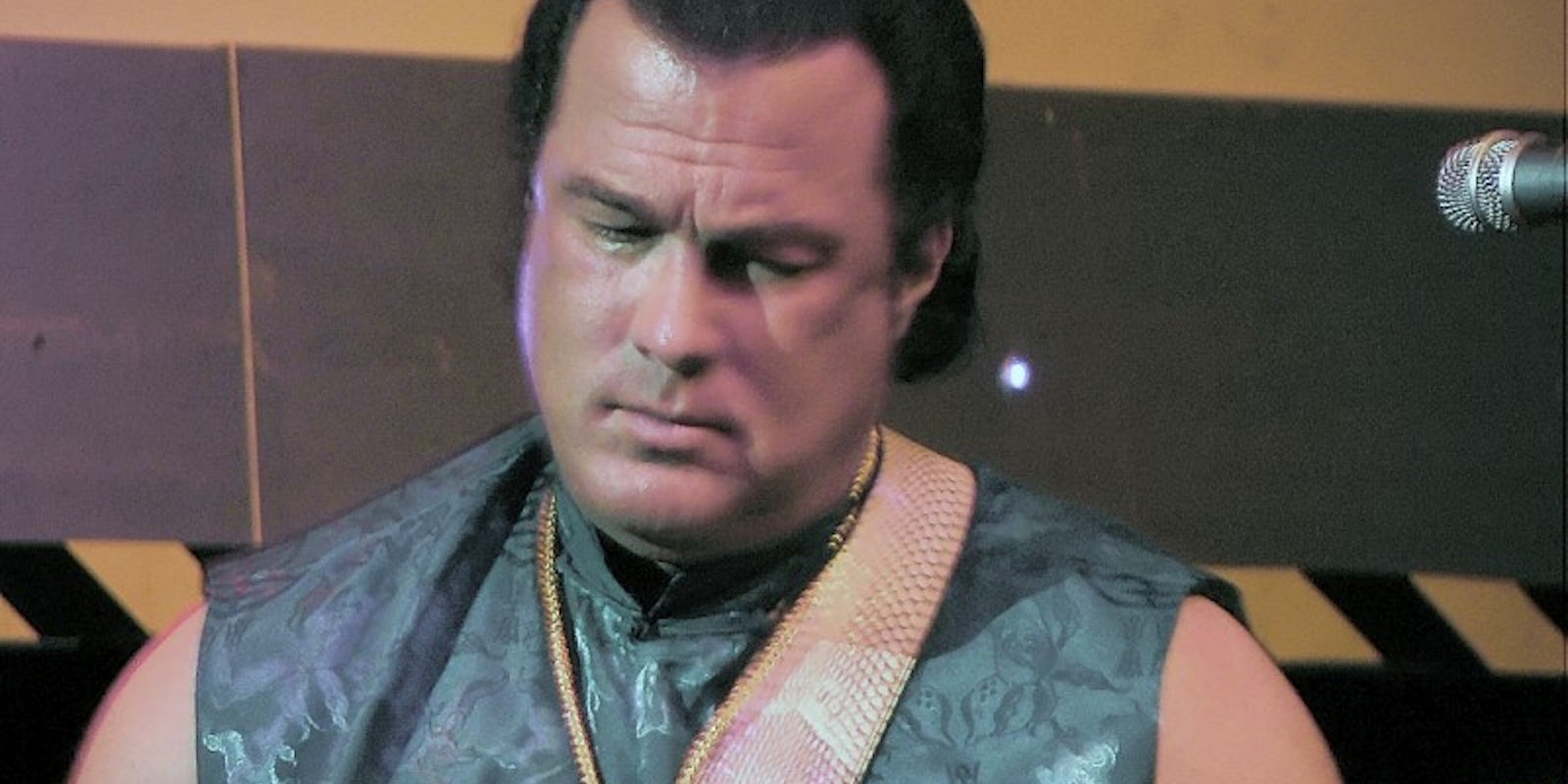A minor movie studio is threatening to sue hundreds of Oregonians for pirating a terrible Steven Seagal movie.
Some of those accused say they’ve done no such thing, and now find themselves under siege.
Since February, Hollywood studio Voltage has sent out at least four lawsuits, naming a total of 615 people it says uploaded one of its movies on BitTorrent, and is asking $30,000 from each of them—$150,000 if the court finds that they were infringing on purpose.
That movie? The critically ignored, fan-panned, ironically named 2012 Seagal vehicle Maximum Conviction.
Or, Voltage says to the people it sues, they can avoid the lawman and pay a $7,500 settlement fee.
Some of those named in the suit, like 64-year-old Emily Orlando, have never heard of the movie or of BitTorrent.
“I won in the ‘bad lottery,’” she told Oregon Live. “It’s terrifying, it’s legal extortion.”
The most notorious so-called “copyright trolls”—lawyers or copyright holders that create mass, dubious lawsuits against people it claims pirated their content—represent porn companies. Their threats carry extra incentive for most defendants to settle, since there’s an added element of shame in being publicly accused of downloading porn.
But there’s a big financial incentive for those who own regular movies to engage in similar practices, and technically, they’re not going above the law: The current U.S. copyright code allows them to sue for up to $150,000 a pop.
That doesn’t mean copyright trolling is a foolproof business plan, though. One of the most notorious porn trolling firms, Prenda Law, is currently on trial, in a case that the presiding judge said has “shifted dramatically from litigation of intellectual property rights to attorney misconduct—such misconduct as brings discredit to the profession.”
Photo via Wikimedia Commons


